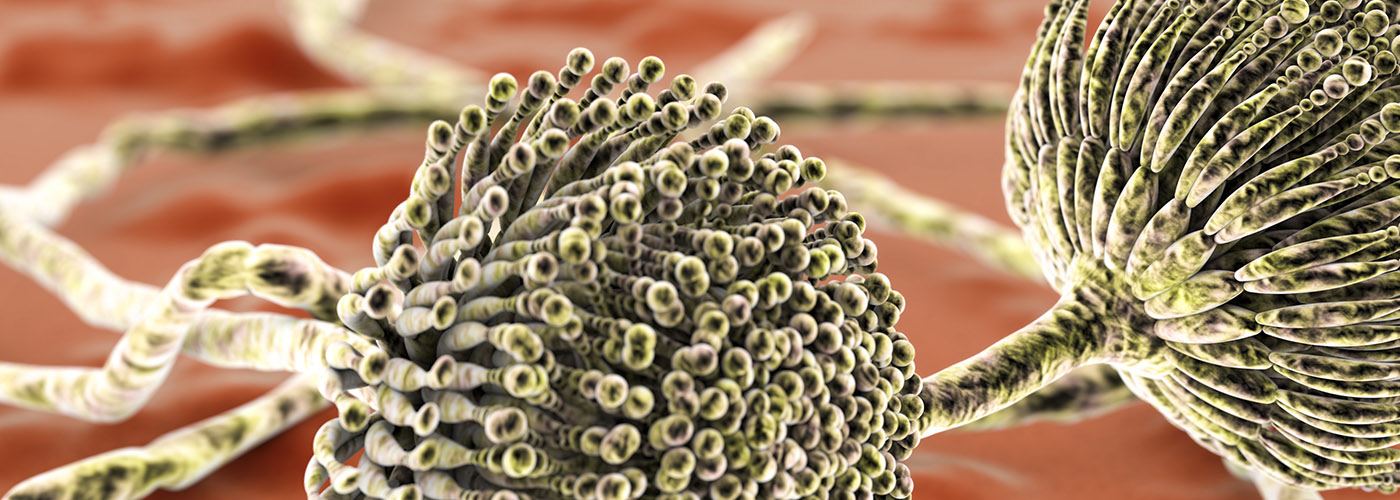
Fungal infections kill more people than TB or malaria, claiming more than 2 million human lives annually. Manchester is recognised as a centre of international excellence for fundamental and applied research into fungal diseases.
Fungal pathogens are typically acquired from environmental sources. They are multicellular eukaryotes which continually challenge the immune system with a multitude of antigenic and pathogenic threats, which must be both tolerated and, where necessary, contained.
Manchester is recognised as a centre of international excellence for fundamental and applied research into fungal diseases. We host one of the world’s largest multidisciplinary groupings investigating mould infections of the respiratory system, with a particular focus on aspergillosis.
Through the synergistic efforts of more than 80 clinicians at the National Aspergillosis Centre (University Hospital of South Manchester), specialist microbiologists at the Mycology Reference Centre Manchester (MRCM) and the Manchester Fungal Infection Group (MFIG), we are working to understand and mitigate antifungal drug resistance. We do this to characterise the mechanistic basis of invasive fungal disease and find new antifungal drugs.
Our approaches involve fungal cell and molecular biology, antifungal immunology, host and pathogen genetics, pathogen functional genomics, and state of the art cell biology and imaging of the host-pathogen interaction.
Our work is serviced by a range of in vitro, ex vivo, in vivo and in silico infection modelling approaches. It addresses multiple fungal pathogens including Aspergillus, Candida and Fusarium species.
